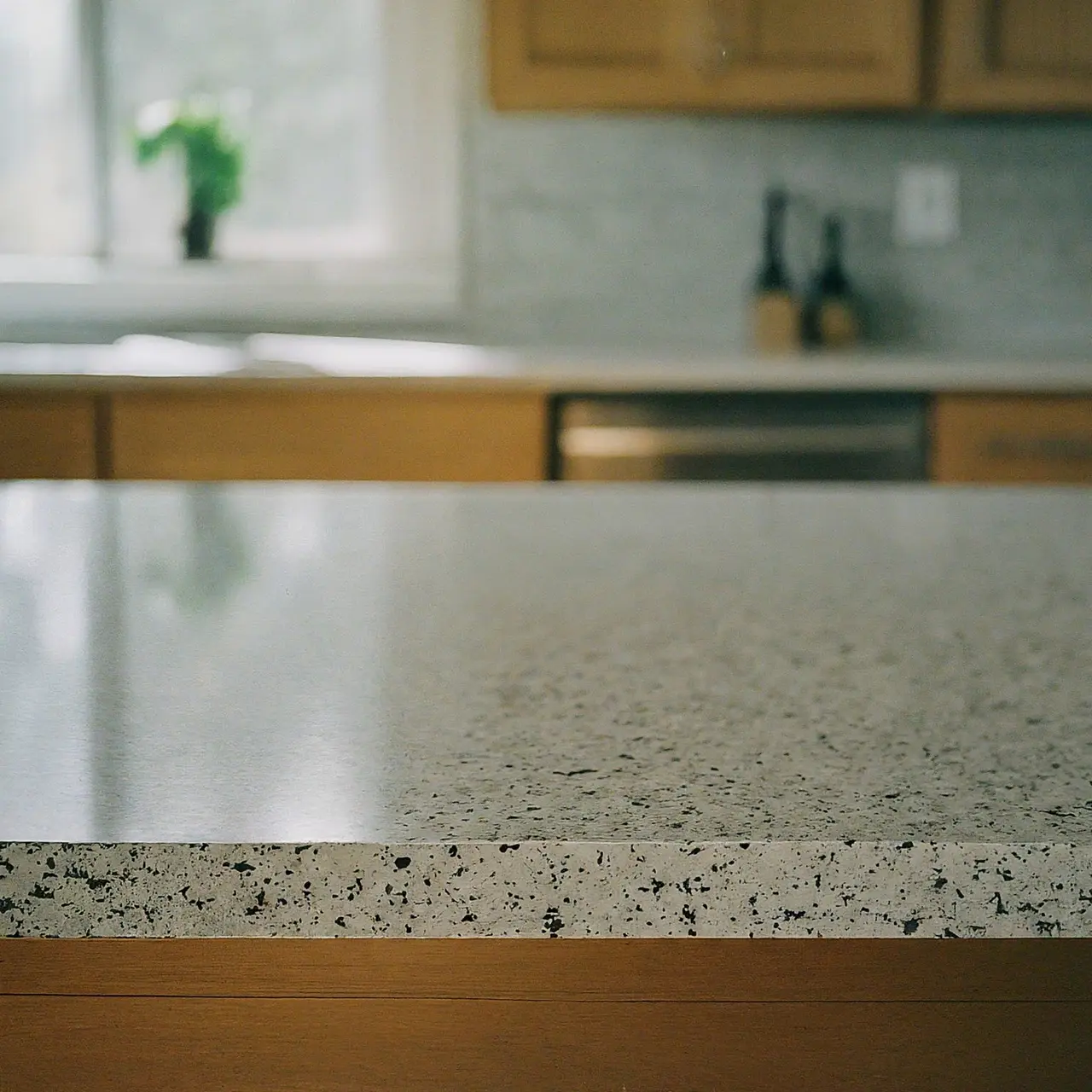How Do Quartz Countertops Compare to Other Materials?
Deciding on quartz countertops? Here’s why they might just be the gem of your kitchen renovation project.
Understanding Quartz Countertops
Quartz countertops, designed for durability, are made from one of the hardest minerals on earth, combined with polymer resins to give them unparalleled strength and beauty. Unlike natural stone, they come in a wide array of colors, offering more customization for your kitchen.
The process of creating these counters involves grinding natural quartz into dust and fusing it with resin binders under high pressure and temperature. This creates a non-porous, stain-resistant surface that doesn’t need sealing—a dream come true for busy kitchens.
Benefits of Quartz Countertops
There’s a lot to love about quartz countertops. They not only boast a seamingly seamless appearance that can mimic the look of natural stones like granite and marble, but they’re also non-porous, making them resistant to staining and bacterial growth.
Furthermore, quartz counters are low-maintenance. They don’t require the regular sealing that natural stone countertops demand, which means more time enjoying your kitchen and less time worrying about upkeep.
Comparing Quartz to Granite
Granite, a natural stone, is beloved for its unique, natural patterns and strength. However, it’s porous and requires regular sealing to prevent stains. Quartz, on the other hand, offers a similar level of durability without the upkeep, and it comes in a wider variety of designs thanks to its engineered nature.
Also, because quartz is non-porous, it’s more resistant to staining and bacteria, making it a healthier choice for the kitchen.
Comparing Quartz to Marble
Marble is acknowledged for its unparalleled beauty and sophistication. However, it’s also very porous, making it prone to staining and scratching. Quartz provides a practical alternative, offering the elegance of marble without its maintenance needs.
Comparing Quartz to Laminate
Laminate countertops can mimic the look of natural stone or wood at a lower cost. However, they don’t offer the same durability or heat resistance as quartz. Over time, laminate can show wear, such as scratches and chip marks, whereas quartz remains consistent in appearance.
Comparing Quartz to Concrete
Concrete countertops offer a handsome, industrial look but require sealing and waxing to maintain their appearance and resistance to stains. Quartz matches the durability of concrete but sidesteps the constant upkeep, staying pristine with minimal effort.
Maintenance and Durability of Quartz Countertops
One of the most appealing aspects of quartz countertops is their ease of maintenance. A simple wipe with a damp cloth and mild detergent is all it takes to keep them looking their best. Their durability is equally impressive, being scratch and stain-resistant, and able to withstand the bustle of a busy kitchen.
Cost Comparison
While quartz countertops can be more expensive upfront compared to materials like laminate, they offer greater longevity and low maintenance costs, proving to be a cost-effective solution in the long run. Their value is evident not just in their lasting beauty, but also in their contribution to home valuation.
Making the Right Choice for Your Home
The best countertop for your home depends on your priorities, whether it’s durability, appearance, maintenance, or cost. Quartz countertops, with their myriad of benefits, meet a broad spectrum of needs, making them a versatile choice for any kitchen remodel or new build.
Why Quartz Countertops Shine Above the Rest
Choosing the right countertop material can dramatically transform your kitchen, not just visually, but also in terms of functionality and longevity. Quartz countertops, with their blend of beauty and brawn, offer a compelling case against other materials. If you’re leaning towards quartz, you’re on the brink of making a choice that combines the best of aesthetics and practicality for your home.

